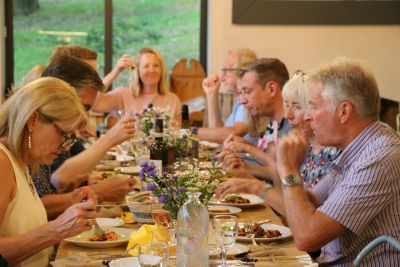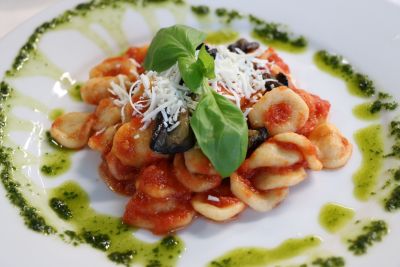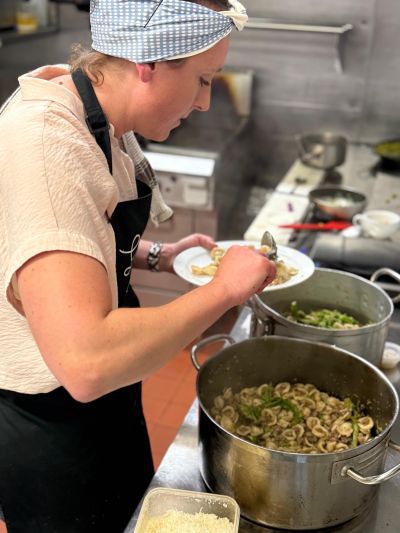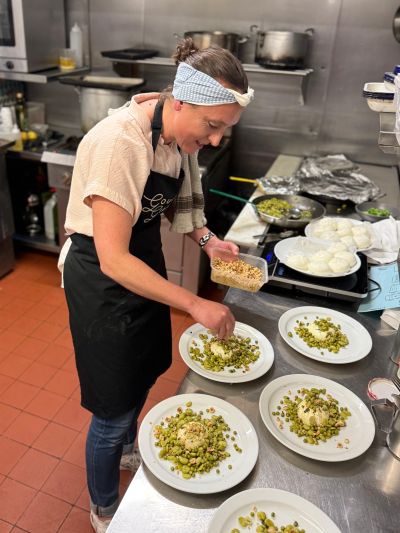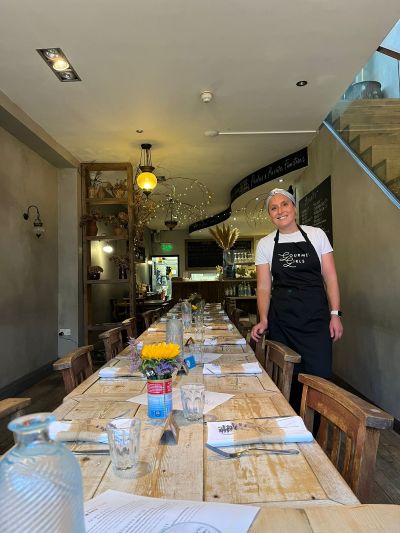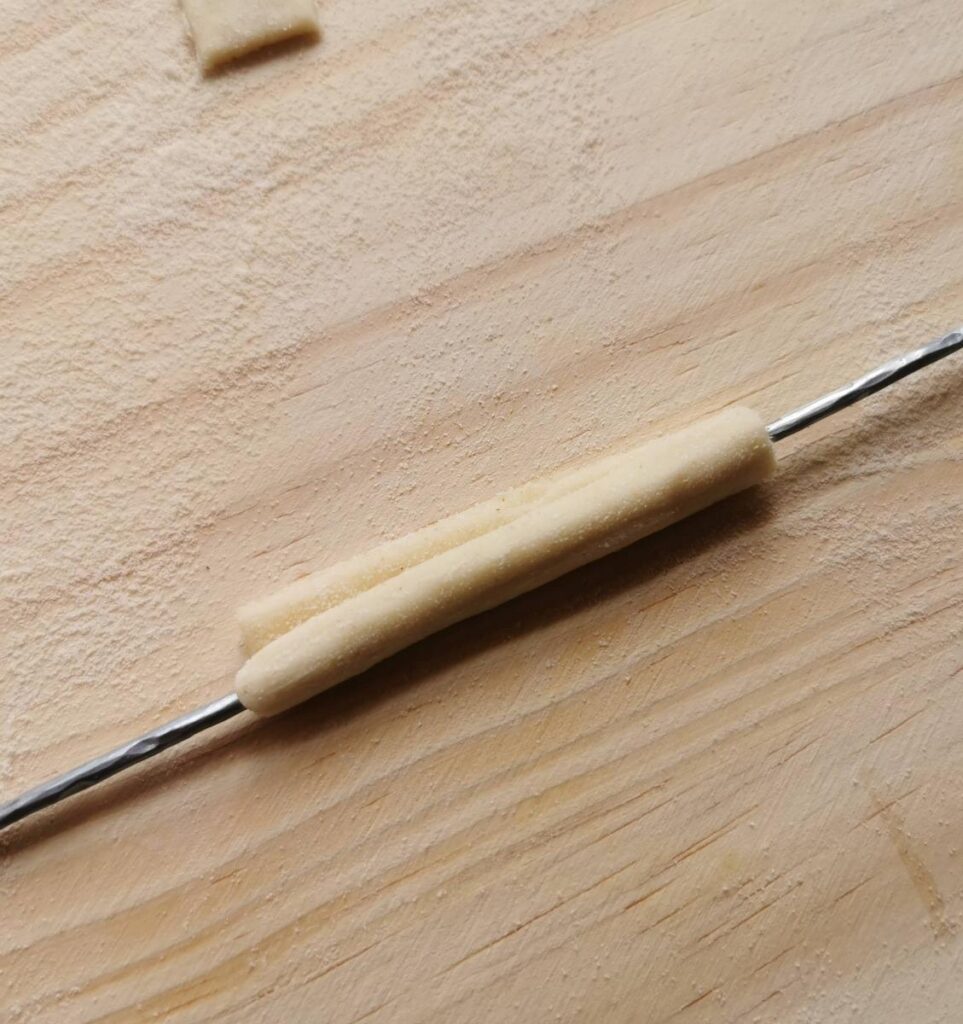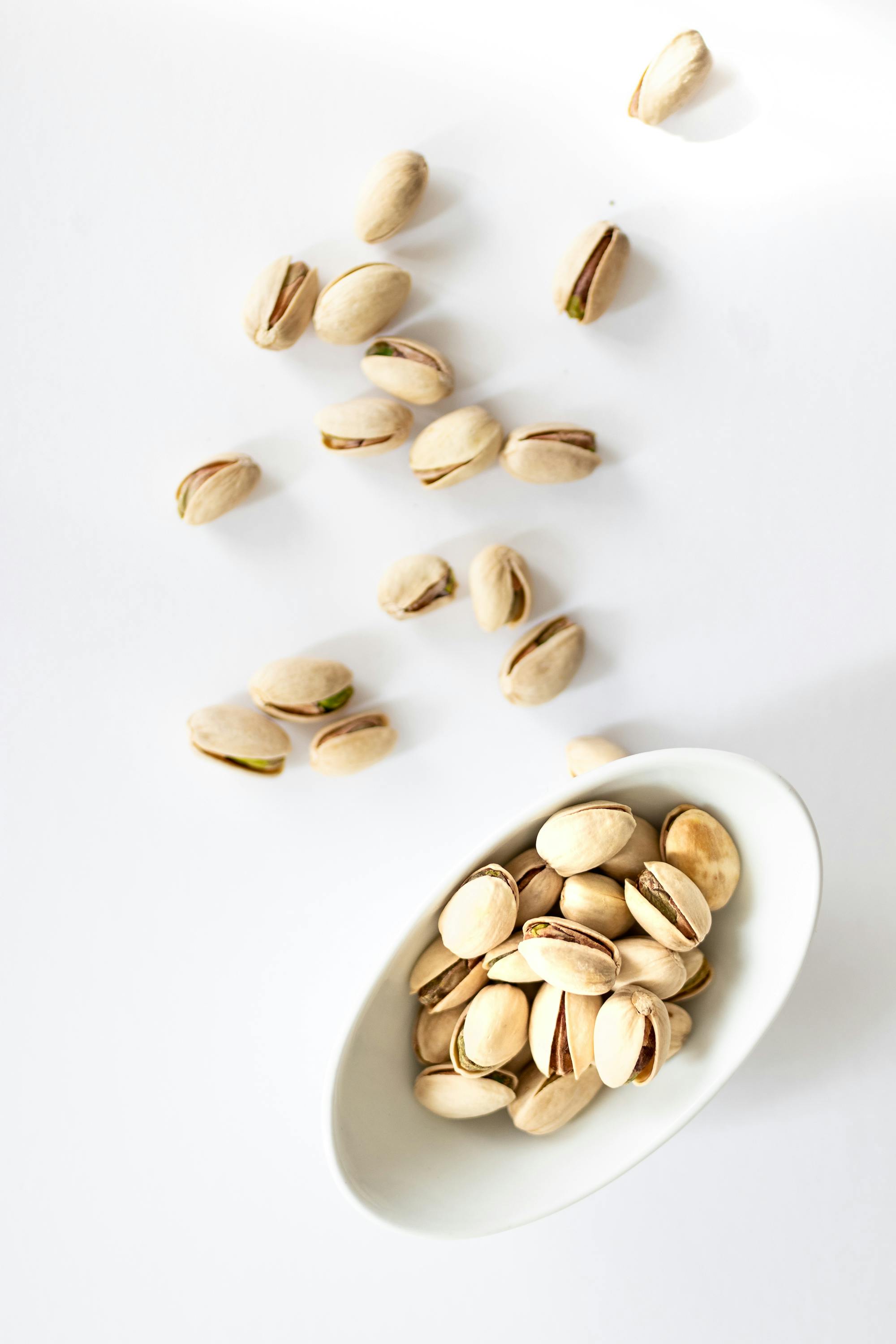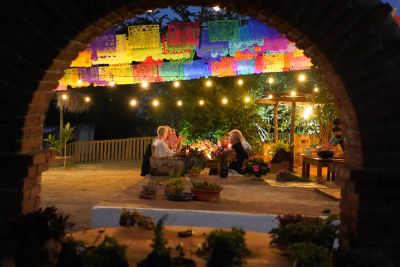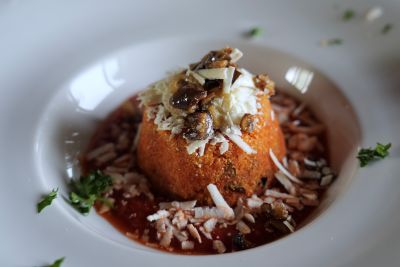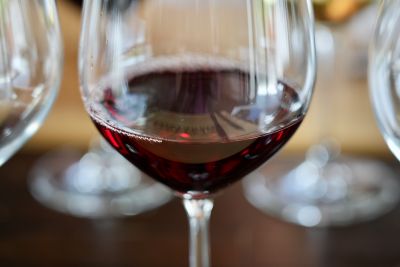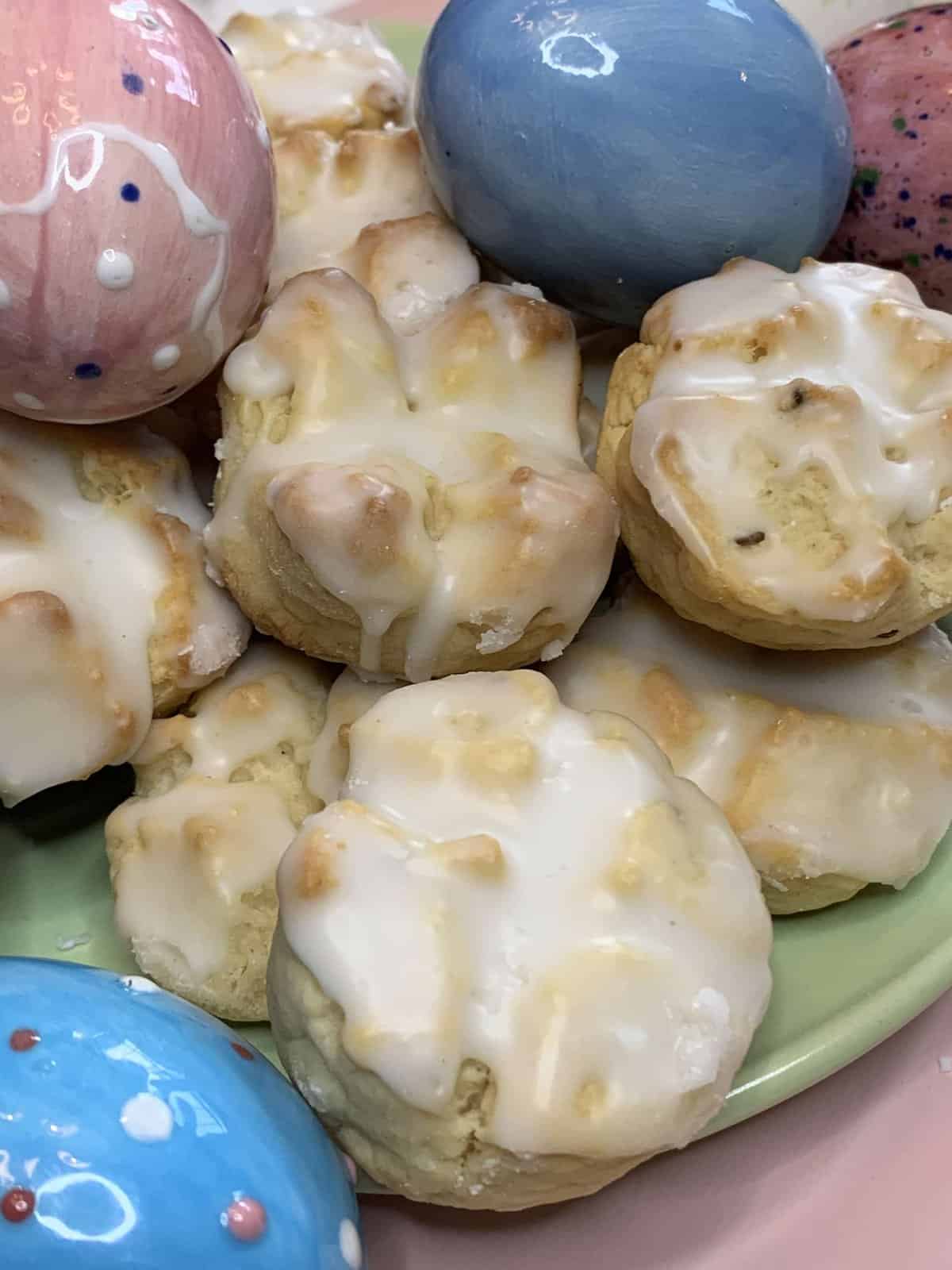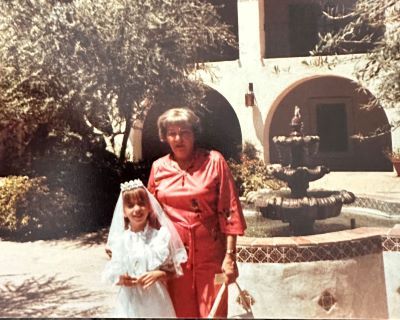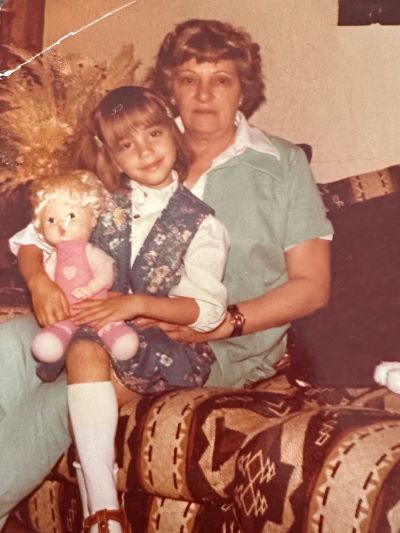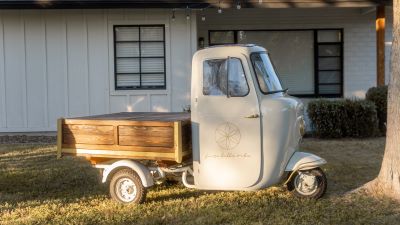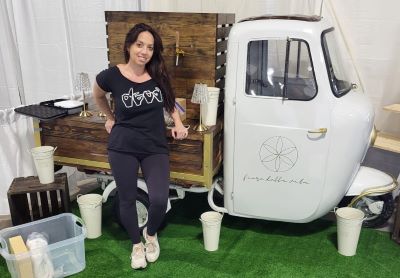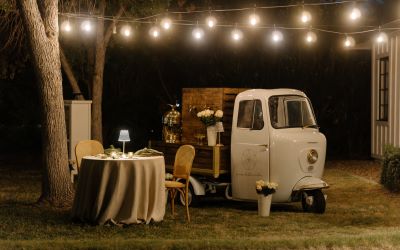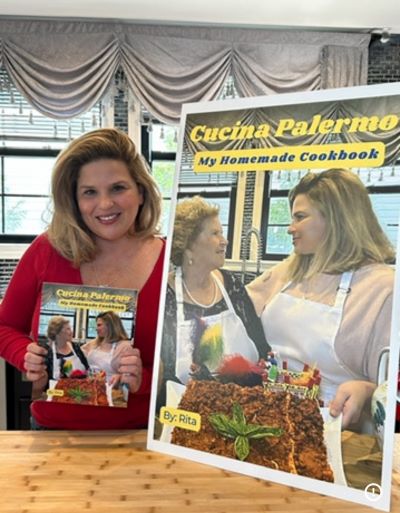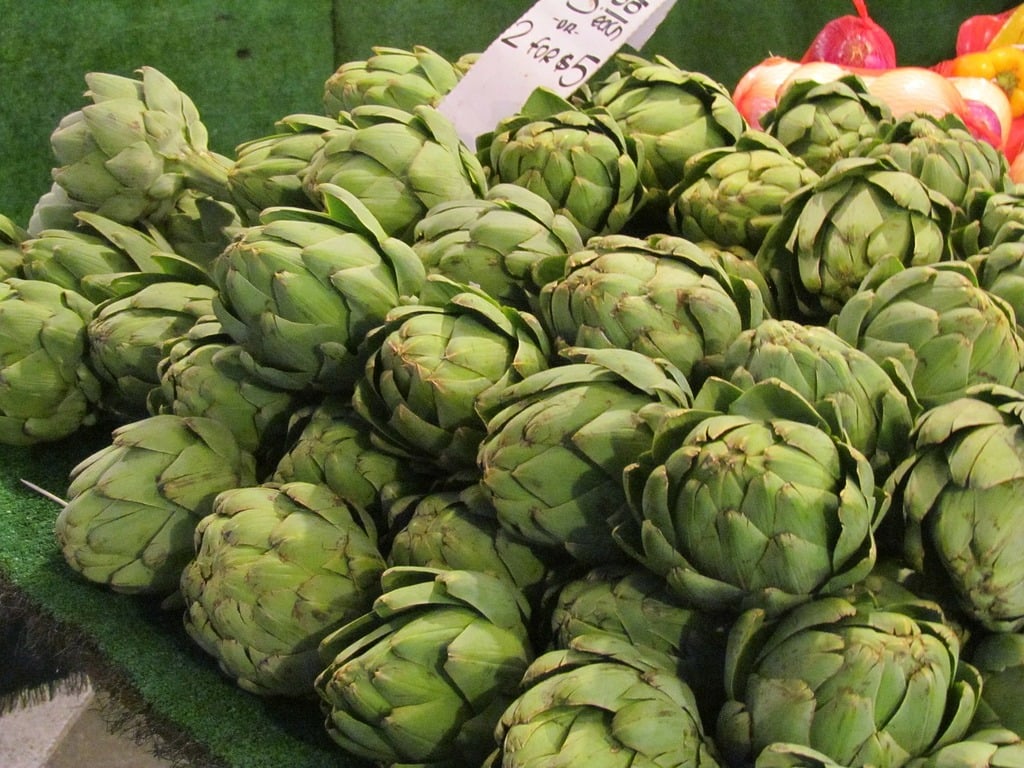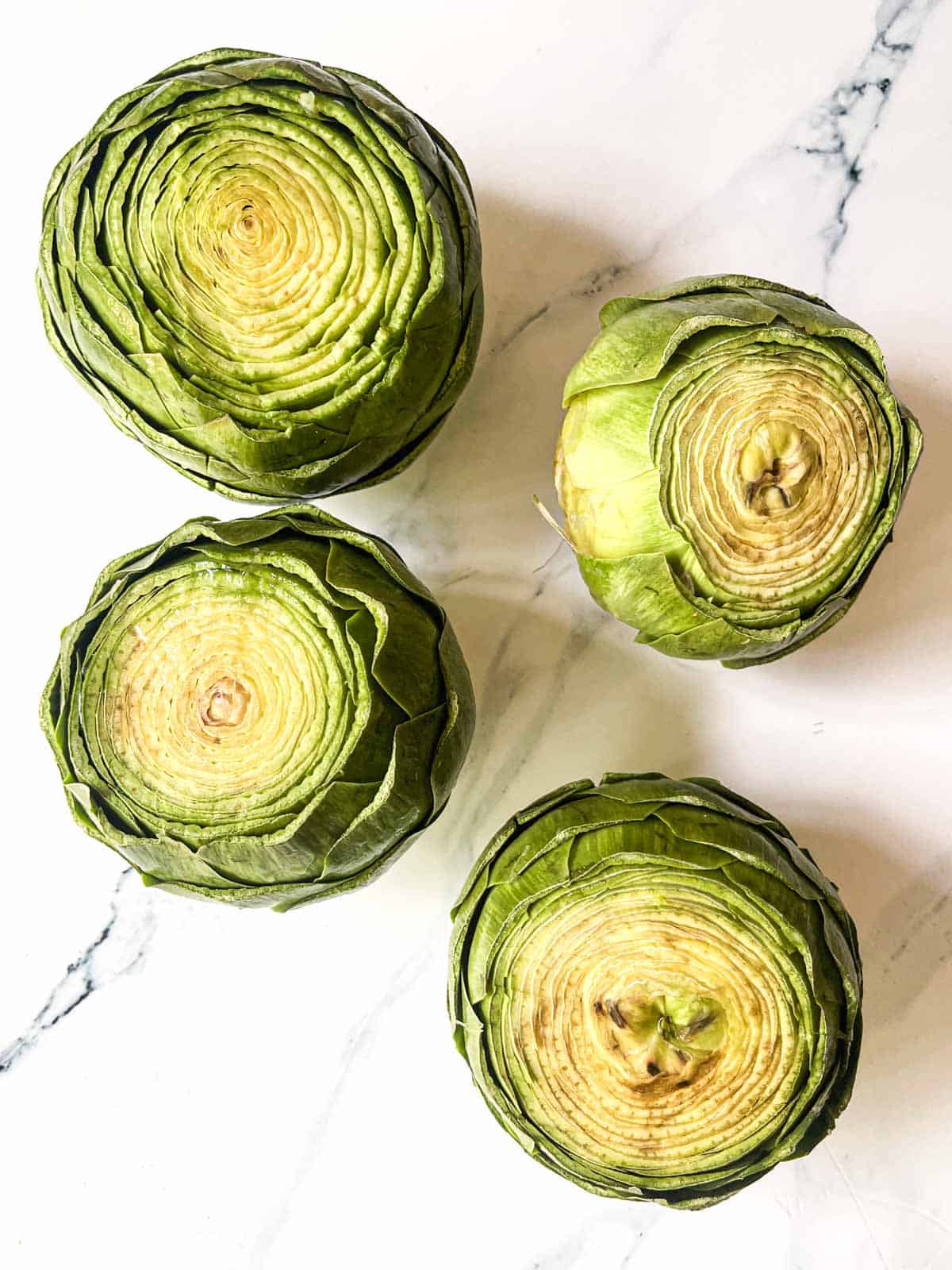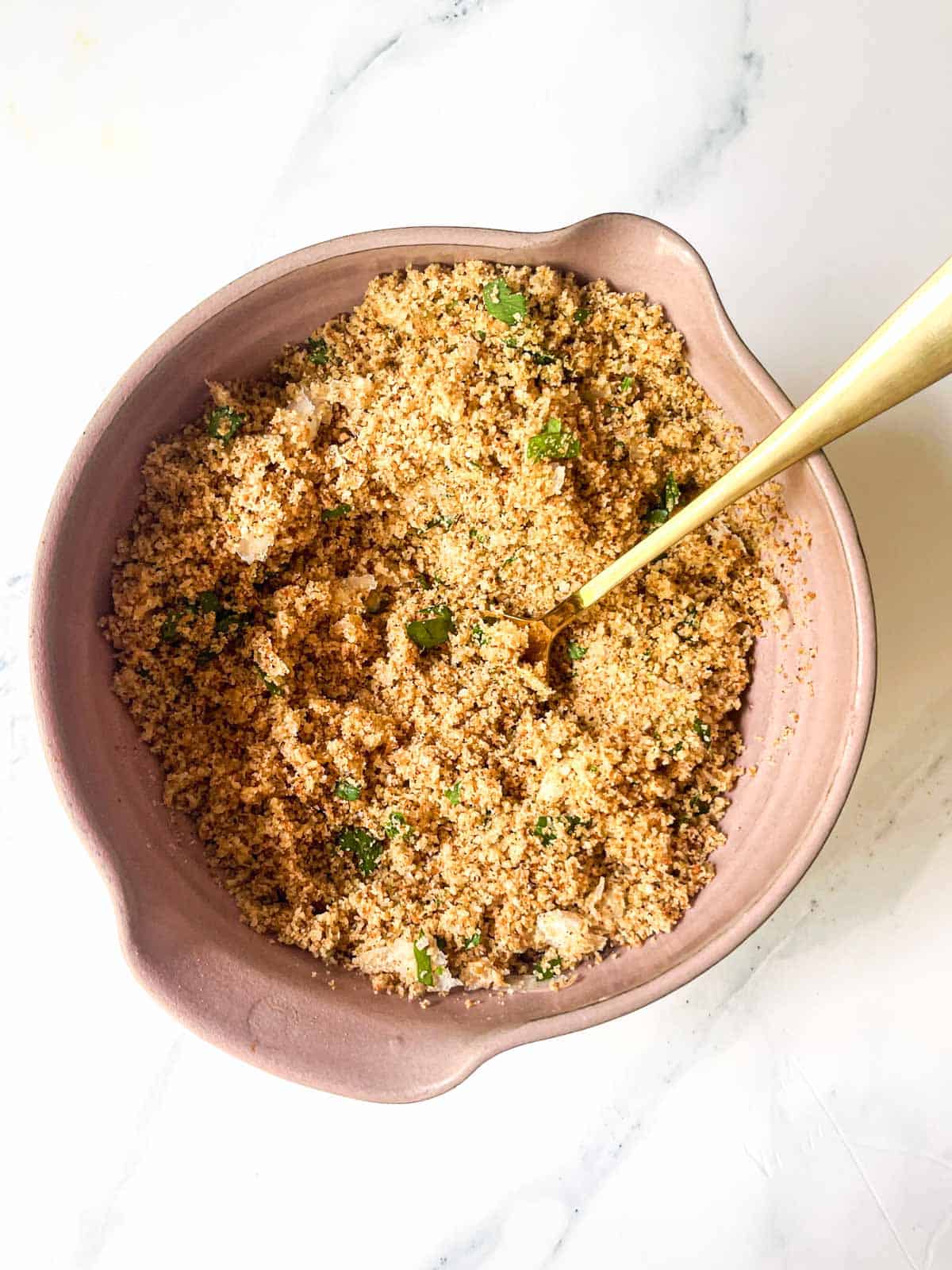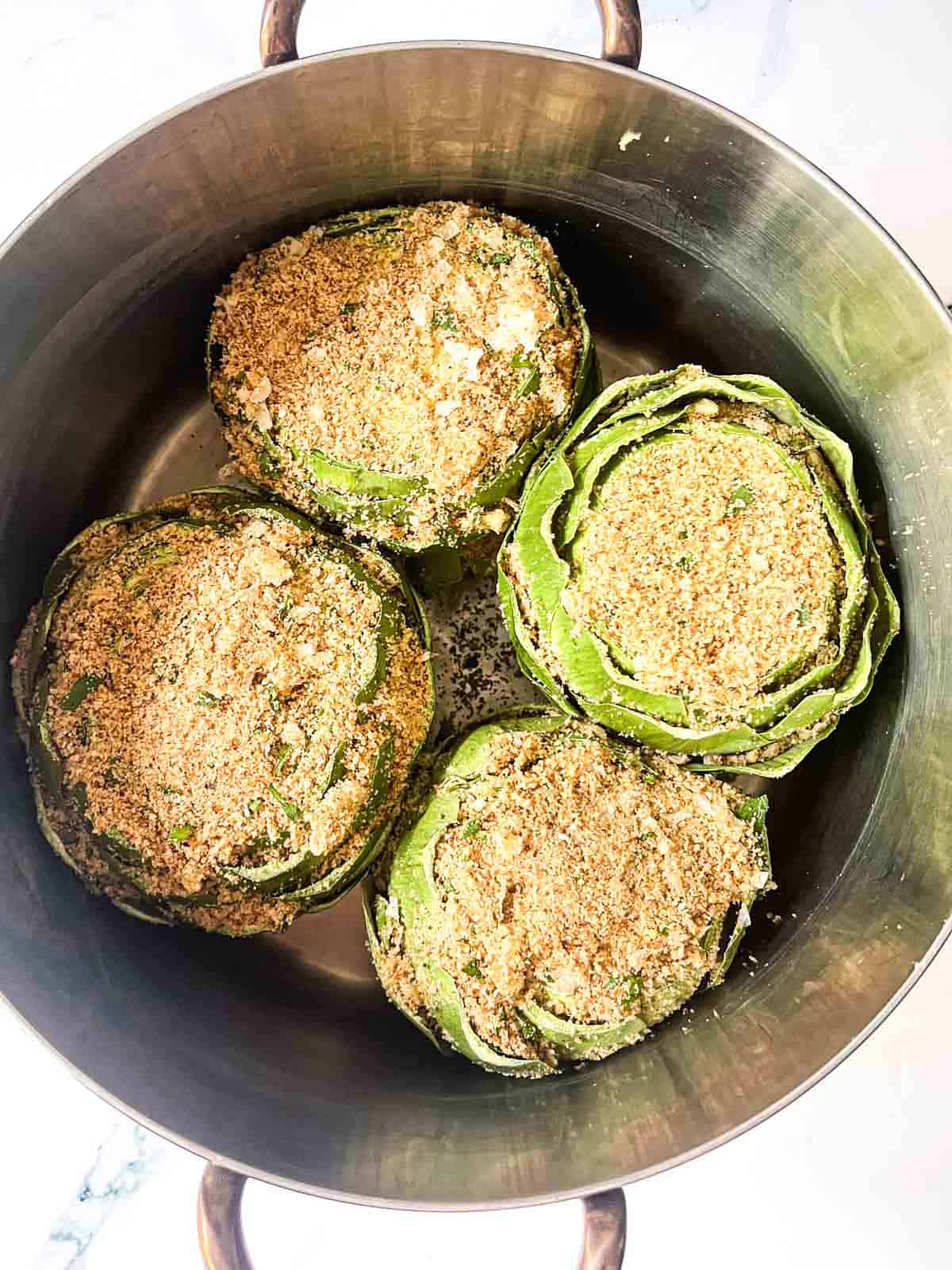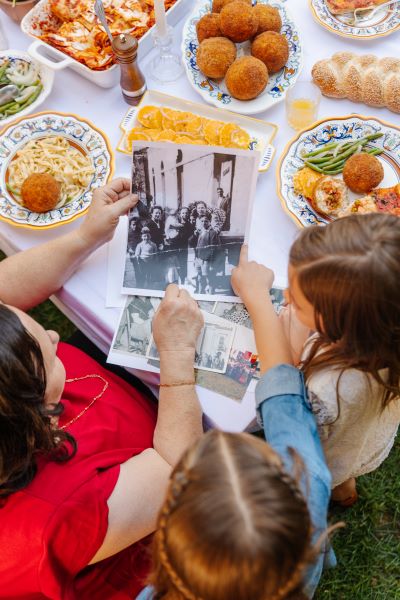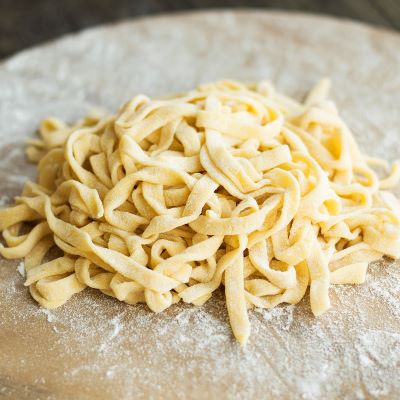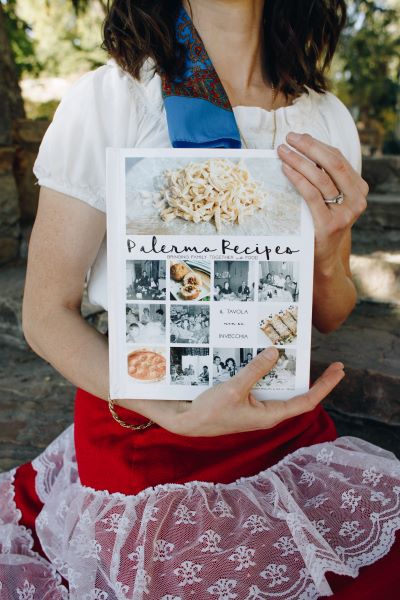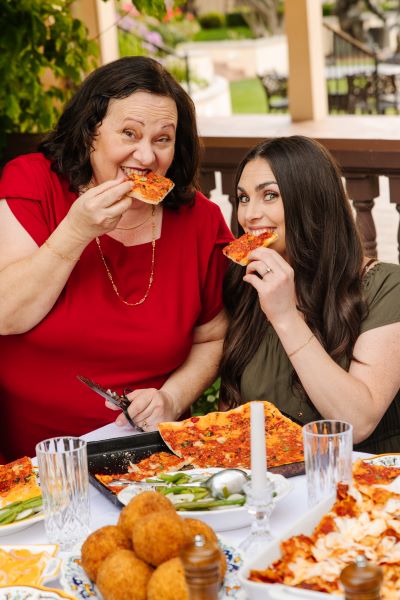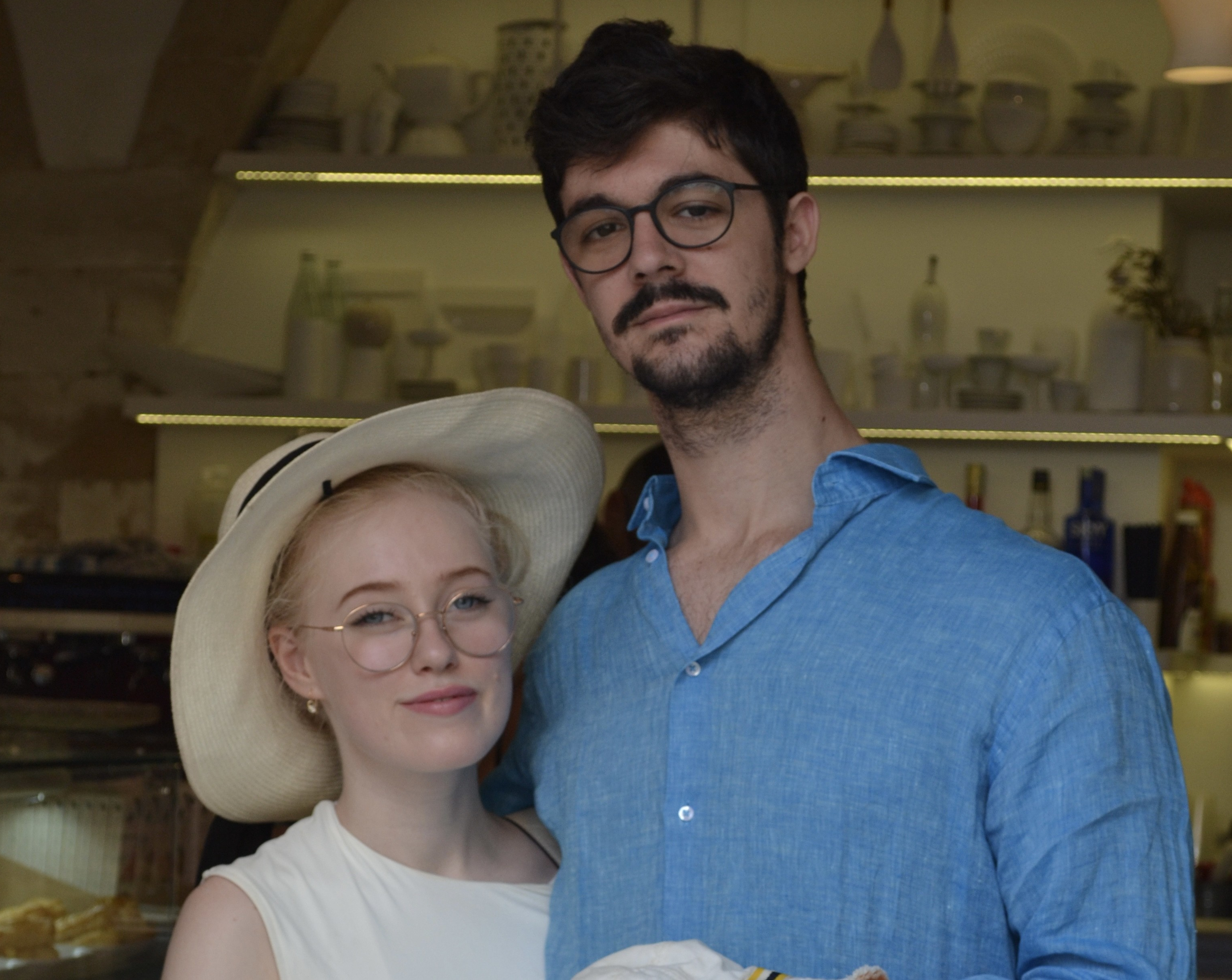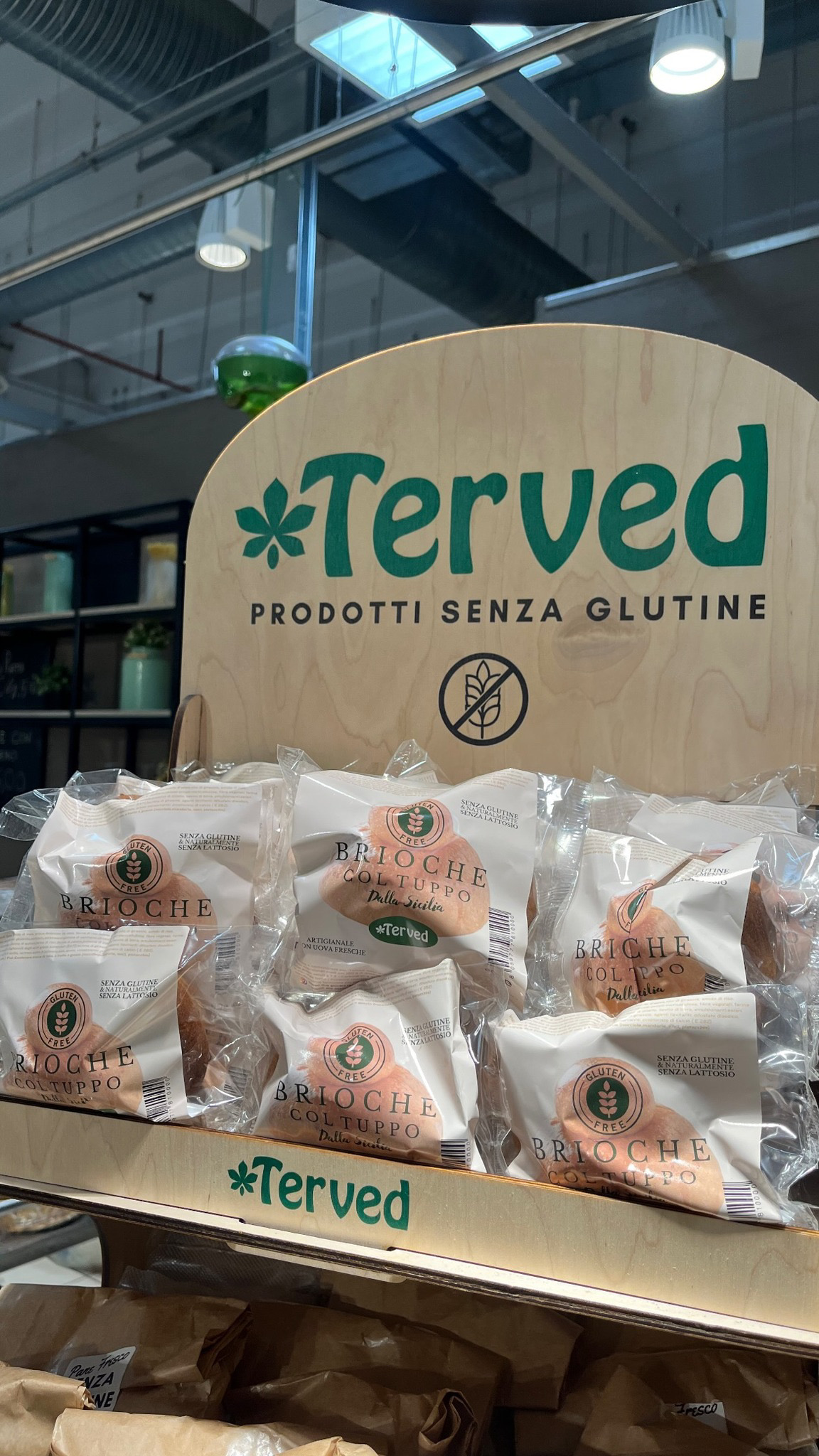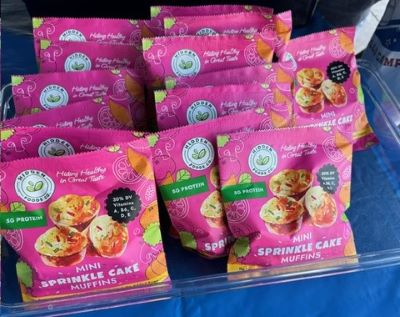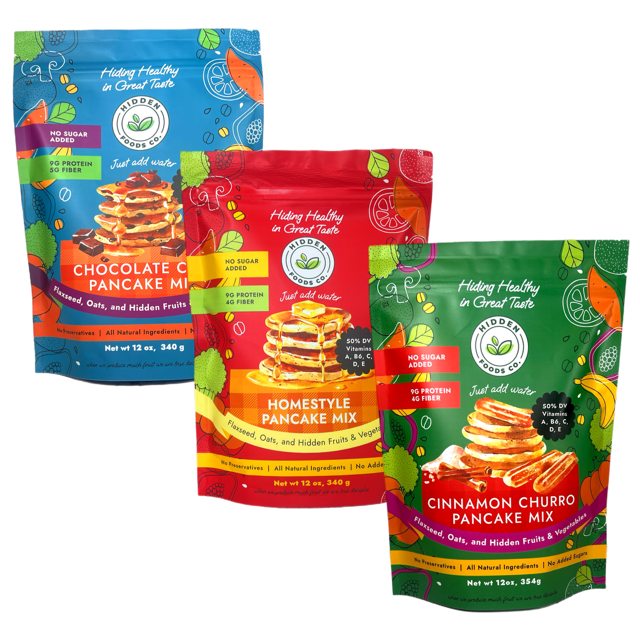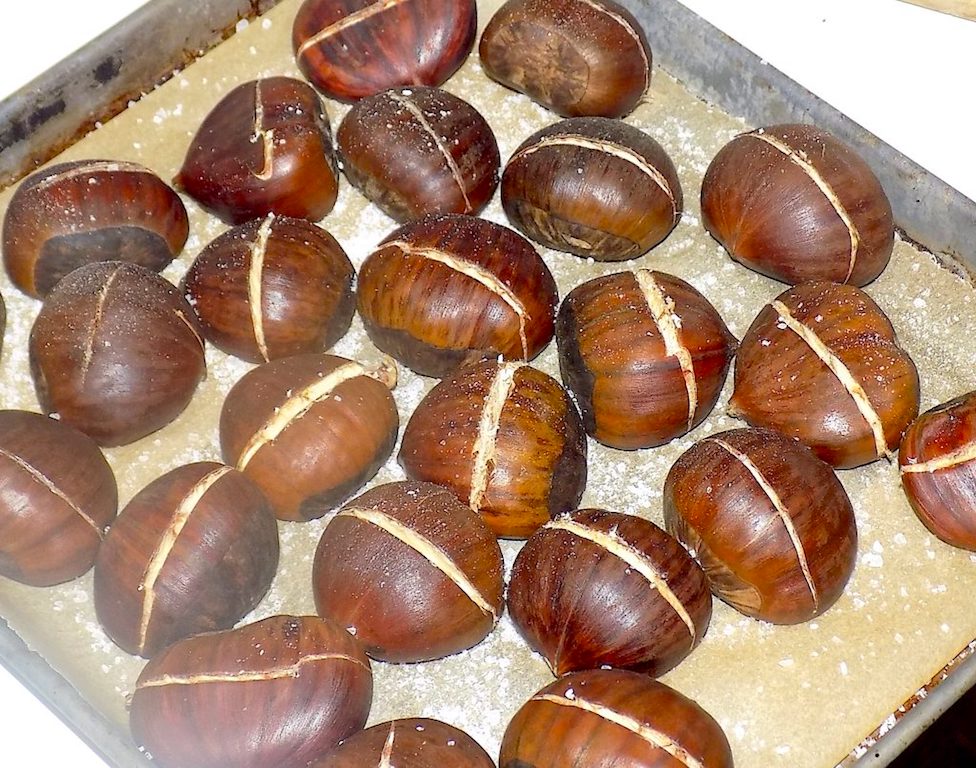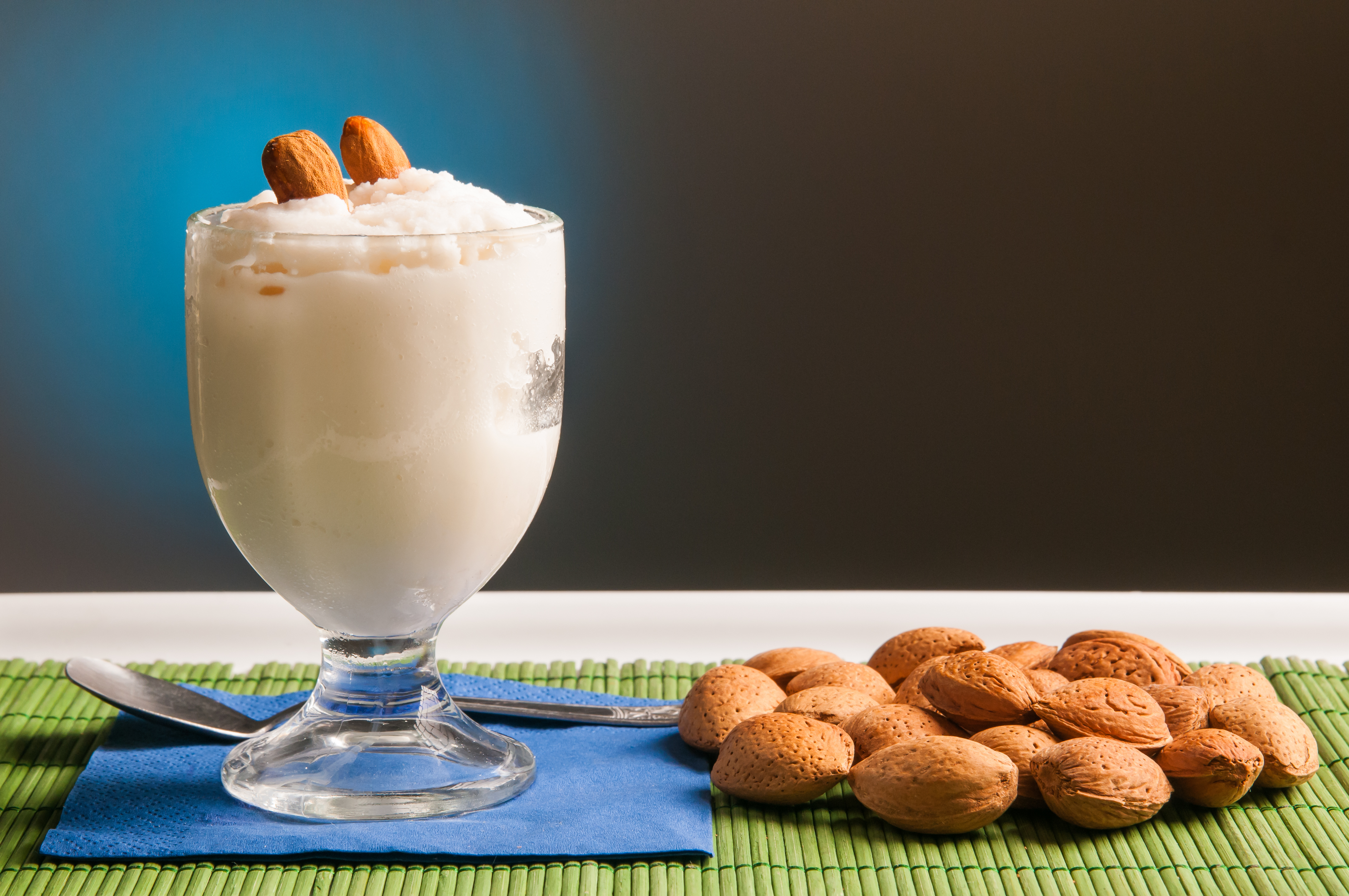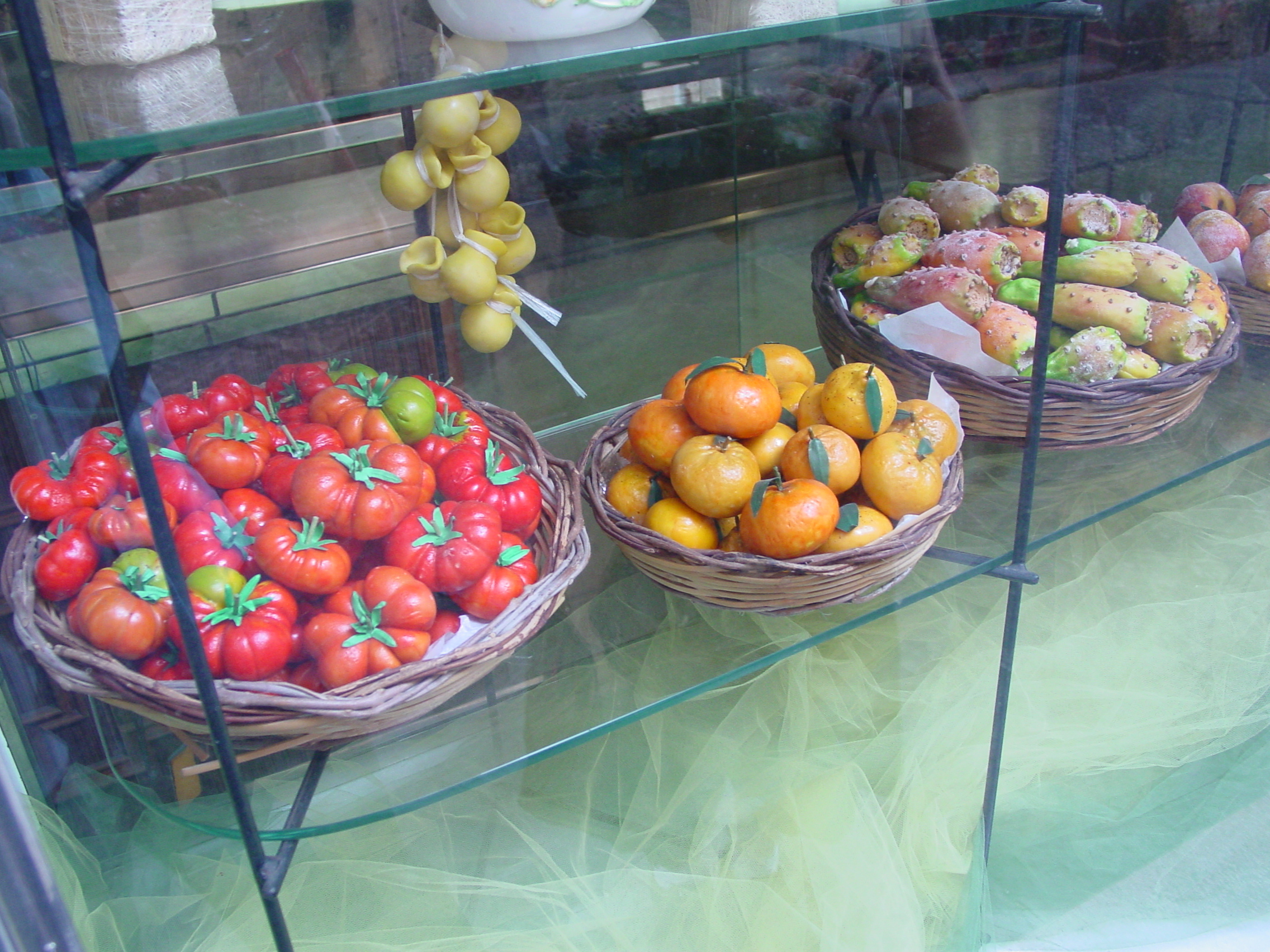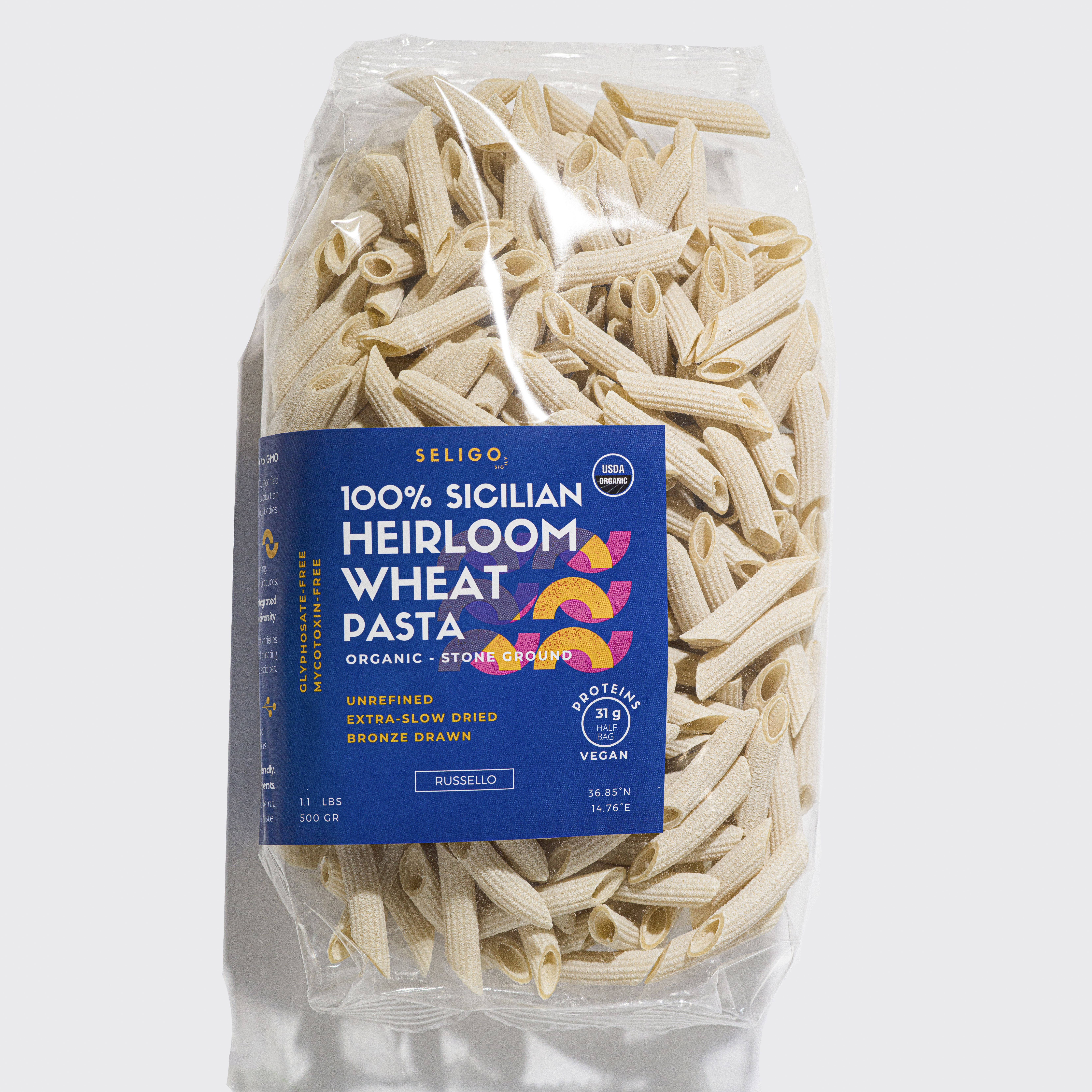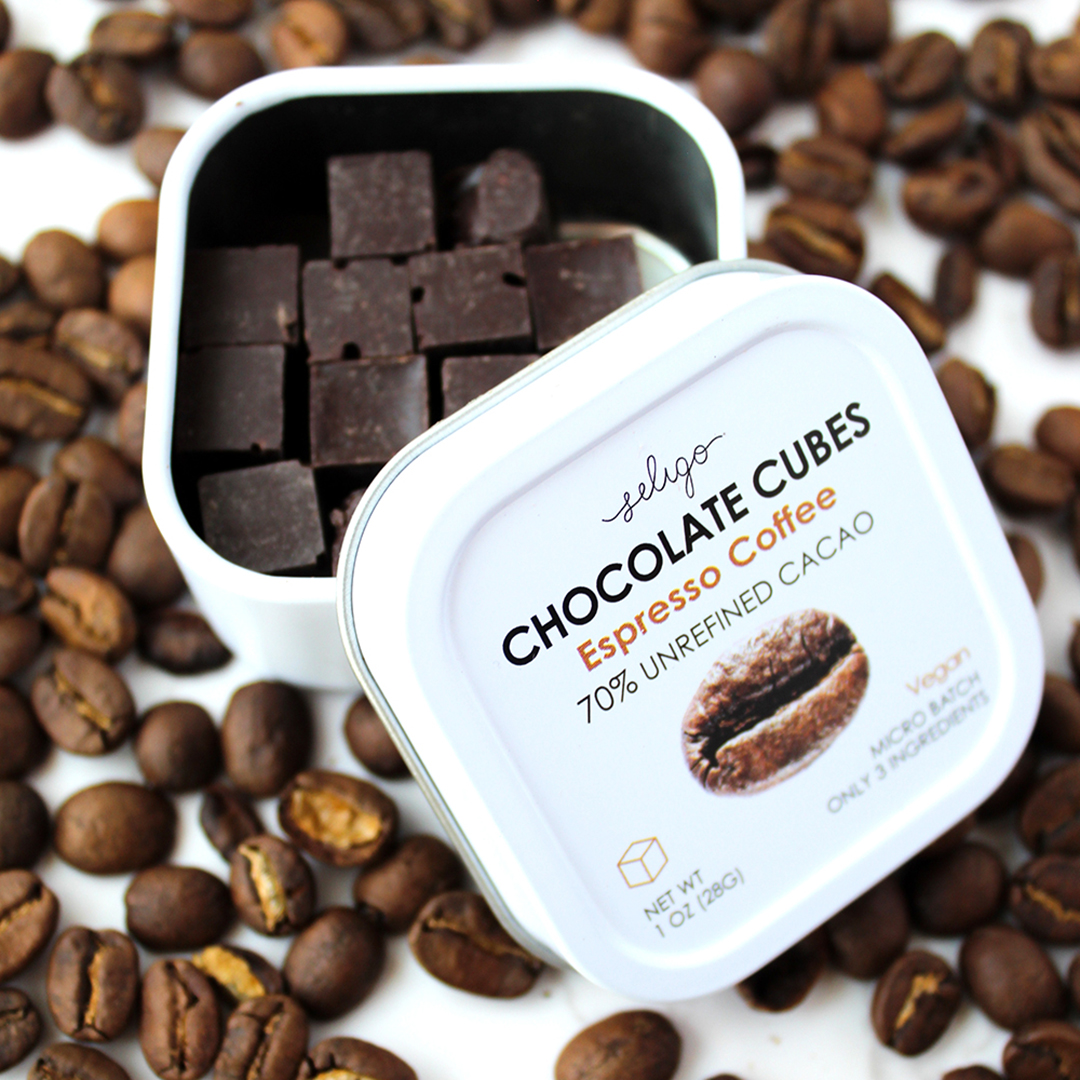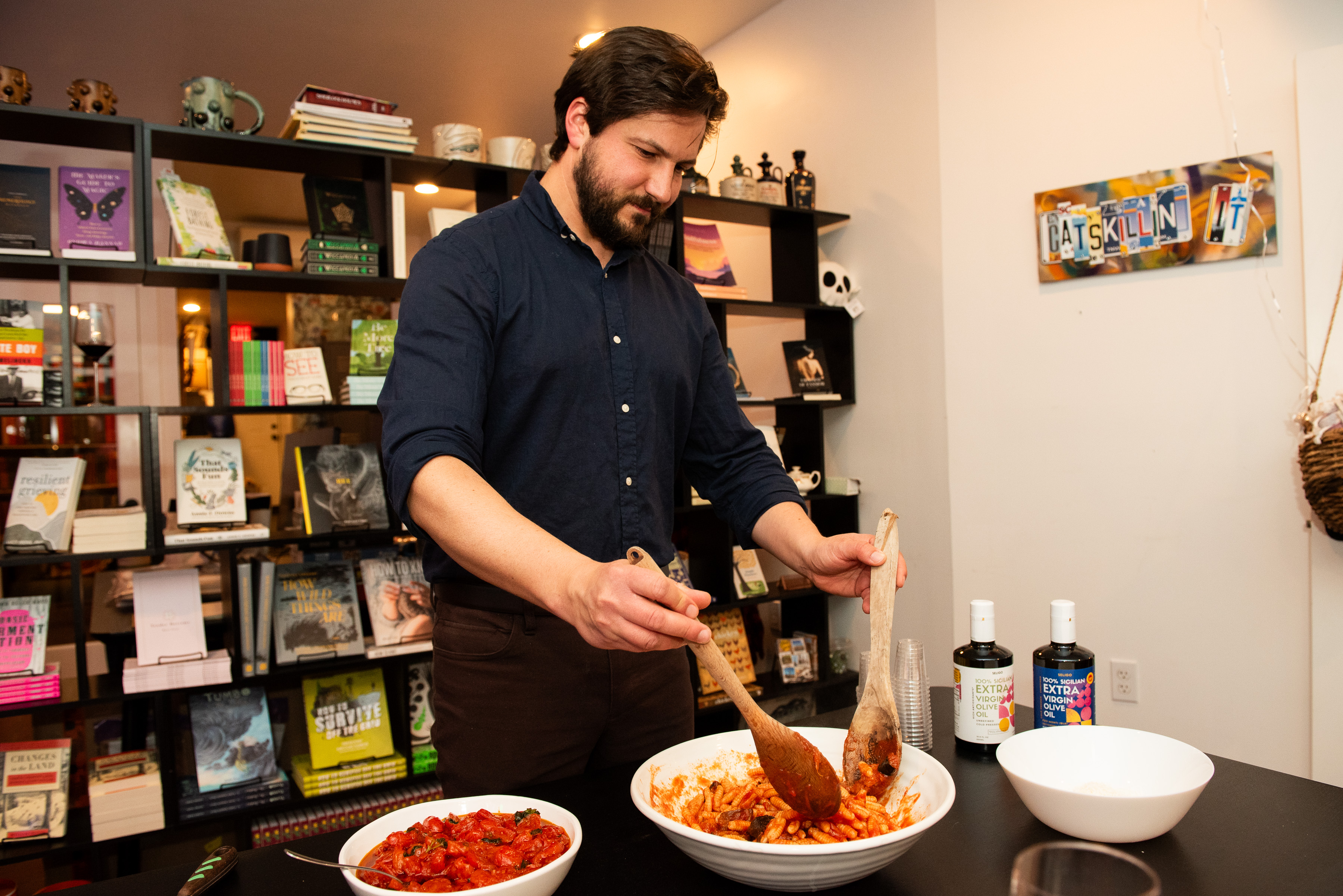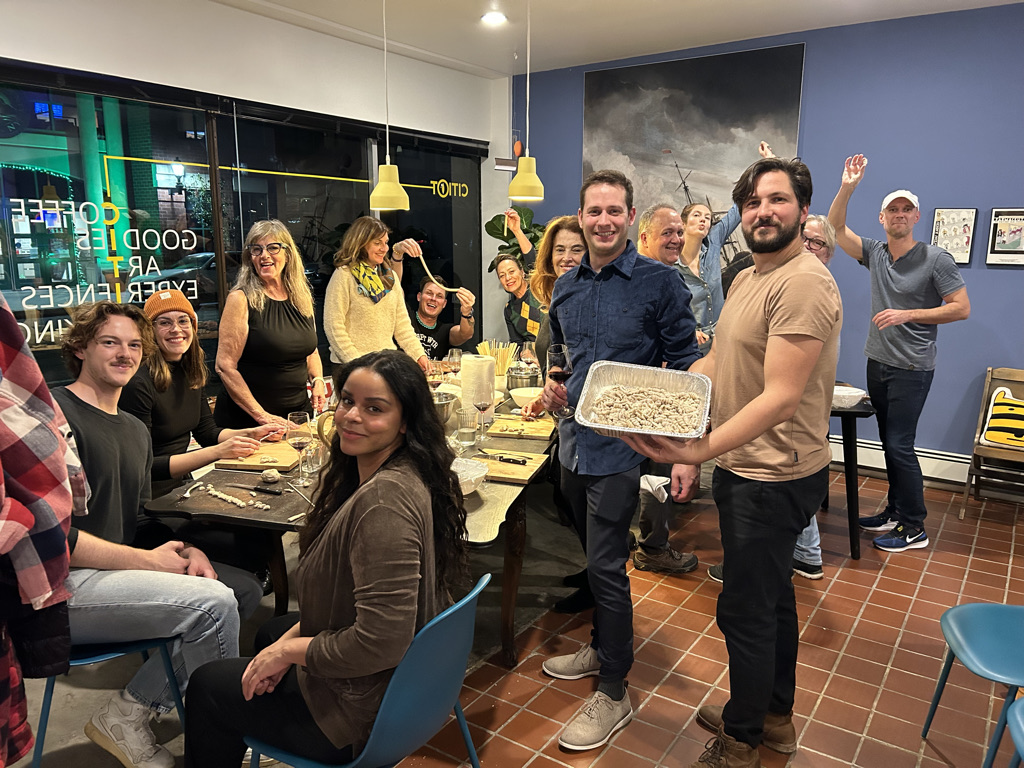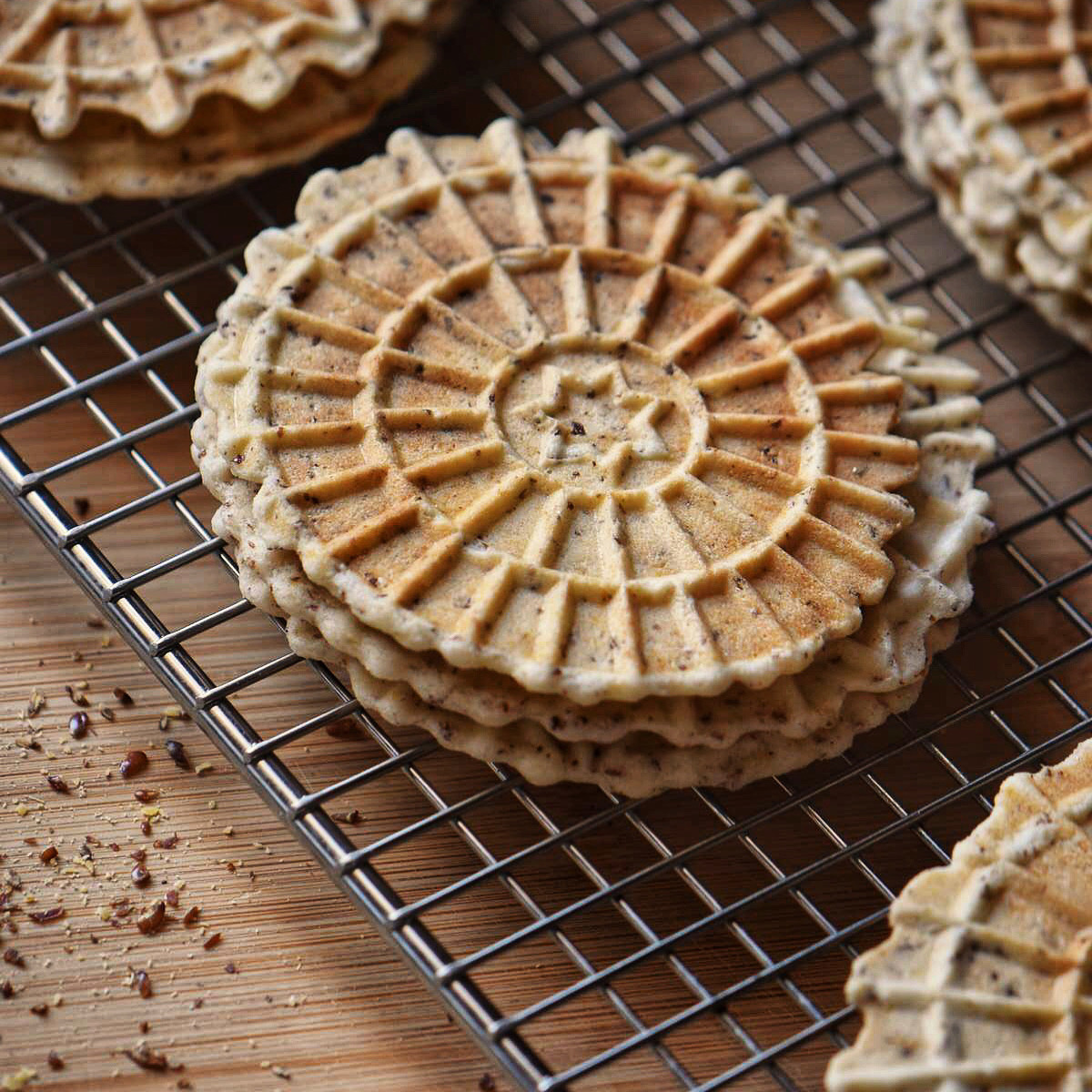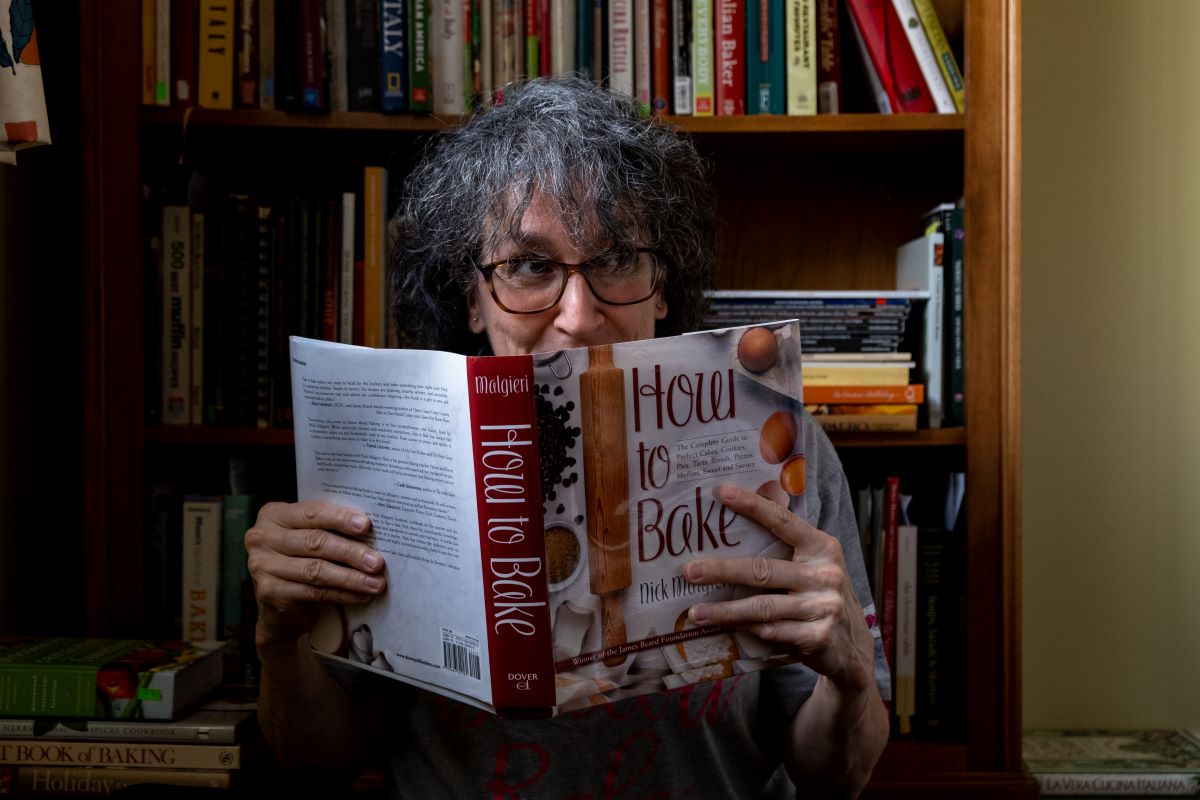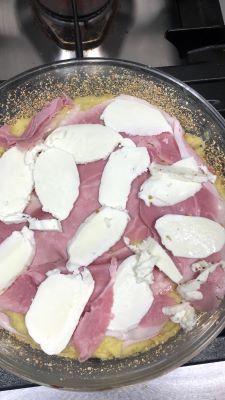Giulia Civello pulls a worn hardcover book from her shelf and flips through it, revealing little scraps of paper marking various pages. It's a cookbook, and one of the bookmarks is labeled "Franco" for her father, marking his favorite recipe.
"What's amazing about these old Italian cookbooks is that so many of the recipes assume such a high base level of cookery compared to the recipes you see now," Giulia says as she looks down at the book. "It's just 'Cook the fruit; make the pastry.' There's no explanation of what that means. And there's no oven temperatures or anything like that. You just have to know, which I think is totally wonderful."
The cookbook belonged to Giulia's great-grandmother and was passed down through generations with Sicilian recipes and food traditions. Today, Giulia shares that knowledge through Gourmet Girls, a series of pop-ups and supper clubs she and her team host in venues and homes across Brighton and Hove, a seaside community in southeastern England.
Giulia's father came to the UK from Catania, Sicily, where her family spent summer holidays. Drawing from that heritage, Italy travels, and her background as an environmental consultant, Giulia serves food stories and sustainably sourced Italian fare with meals celebrating various regions such as the Dolomites, Puglia, and, of course, Sicily.
Giulia shared more about her business and passion for Italian food, memorable events, favorite dishes, challenges, and what she hopes diners take away.
How and why did you start Gourmet Girls?
I thought about doing it for a long time before I actually had the guts to launch. I started in ecology and then migrated into the environmental sector. I've always been a foodie and interested in sustainable food and farming.
I was always getting my grandma to teach me recipes. My grandma grew up with her mother, father, and grandmother in the house, so she wasn't actually the main cook in the house; it was her mother.
I worked in London five days a week, commuting up, which was incredibly stressful. I thought, "What am I doing? This isn't what I want to do." Then other things happened in my personal life, and I thought, "If I'm going to do it, I just need to do it now." So, I went for it.
It started as—and mainly still is—supper clubs, which are a great model for me because I host these pop-ups at venues. I don't have my own catering kitchen, but I go into places, cook in their kitchens, and invite people over for an evening. Everybody sits together, and it's all very much about community. I come out and tell them about the dishes and the heritage of the dishes. But the real thing for me is cooking Italian food that people don't get in an Italian restaurant here. I want to cook regional Italian food, which is what Gourmet Girls is all about—everything from the Dolomites to Sicily to Tuscany to Puglia.
Many friends say, "Oh, we don't go out for Italian; we just go out for Asian. You can just cook Italian at home, can't you?" And I say, "No, no, there's so much more than what you get in your High Street pasta/pizza restaurants." And so that's what it's all about, really.
Guests enjoy a Gourmet Girls supper.
What makes Brighton and Hove a special place to offer events?
Brighton is a brilliant place. It's very multicultural and open. It has a very big LGBTQ community, and you get a lot of people who come down from London, love it, and stay from all over. You get people interested in trying new stuff and lots of different groups. It's interesting to see the kind of people who attend my events. You get all age groups, people who are learning Italian online, who are really obsessed with Italy, real foodies who just want to try something different, or people who have just heard about it. It's a nice mix of loads of different people coming together, who are joined by their interest in what the food will be like.
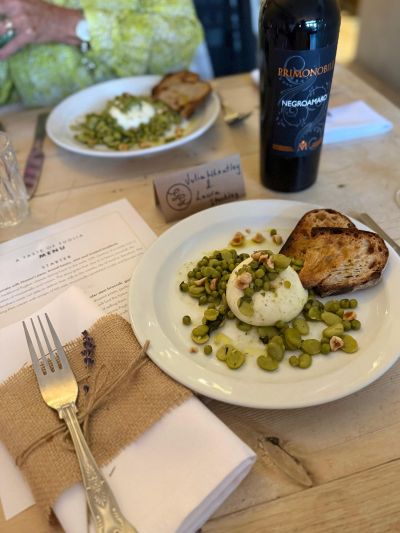
Suppers are served with stories to complement the courses.
Share a memorable Gourmet Girls event.
The biggest one I did was a Roman street food pop-up. That was challenging. There were 70 people, and I was churning out the Roman version of arancini (supplì).
Every time I do an event, I get anxious in the lead-up—that's just my personality. But then I come away feeling so warm inside because people just love it. They love that you can tell them interesting anecdotes and the heritage of what they're eating.
I had a job in a cheese shop when I was studying at university. People would love it if you told them how cheese is made and the story about the people making it. It's just that connection with food, isn't it? It's totally different. And that's what the supper clubs and catering are all about, really. It's about sharing my love of the dishes and the heritage of the dishes.
Pasta alla Norma
What are some favorite regional dishes you introduce?
I always do pasta alla Norma, which people have sometimes heard of, but often the aubergine is so badly cooked. People try to bake it. It's like, "Get a pan of oil and fry it!" That's the way to get the best out of an aubergine. I make a really good pasta alla Norma, with a lovely ricotta salata, which I get from a really amazing Italian cheese guy in London.
That recipe comes from Catania, so I'm particularly fond of it. It's named after the famous opera by Bellini. As the story goes, playwright Nino Martoglio said, "Chista è 'na vera Norma!" when he tried it for the first time.
I also enjoy serving granita, traditionally a breakfast food, as a dessert. I serve it with a little brioche just as you would have at breakfast time in Sicily. I do an almond granita with a little shot of espresso that the guest can pour on top. When my dad has granita, it's always alla mandorle with caffè on top. It's just the most divine combination of flavors, so that's another favorite as well.
Giulia Civello in the kitchen.
What were some of the biggest challenges you've faced?
The challenge I find is that Italian dishes are based on the quality of ingredients. The UK climate is so different from that of Italy, especially Sicily. If you try to cook pesto alla Trapanese, which has almonds, tomatoes, and basil, you won't get the same flavor. A lot of British chefs who cook Italian food throw everything at it to compensate. You end up with these pasta dishes with 17 ingredients, which you never get in Italy. I seek out really high-quality ingredients to try and replicate those Italian flavors, which is not all that easy. And so I have to kind of tailor the menus around what I can get. Staying true to the authenticity of the dish is key for me.
Another challenge has been marketing and learning to spread the word about the events. Fortunately, I have a good family network and friends in Brighton and Hove. So my events initially were filled with friends and family, but once they've been once or twice, you need to move on to the next set of people. It's like, how do you reach them? That's been a big learning curve.
I attended networking events and posted my event on all sorts of random event websites, trying to get the venues where I was hosting to post it on their socials. That helped a lot. I'm lucky my best friend and her husband have a branding agency. They did all my branding, which was amazing.
Giulia Civello adds the finishing touch to a Gourmet Girls meal course.
What are your future plans?
Probably not immediately, but I would like it to be my full-time job. The supper clubs are great because they allow me to test recipes. It's quite a friendly setting to do it. I haven't had to make huge investments financially in terms of catering equipment and things like that. The venues also have staff that I can rely on. But the plan is to eventually transition to having my own prep kitchen and all my own kit and doing much more private catering—not mass wedding catering though; I'm not interested in doing 250 plates of food for a wedding. I want to do small things, where it's still very much about the food I'm cooking. It's not just the event; it's about food. That's what I'm all about, really.
Gourmet Girls guests typically sit at a long table for a communal dining experience.
What experience do you hope to share?
I hope my guests will come away having eaten something new and learning about Italian regional food.
This winter, I'm planning a Dolomites menu. After university, I spent a ski season in Italy, where I lived in the Dolomites in Val Gardena for six months. It was a glorious experience.
The food there is just wonderful. It is quite Austrian in terms of its influence because where I was, it actually used to be Austrian; the border moved during the war. When you're skiing there, you see these beautiful mountains, and they've got all the holes where the soldiers would be hiding and fighting. It's an amazing place, and it's all dumplings, polenta with sausages, and strudel. It's so different from anywhere else in Italy; really hearty mountain fare. So I think that will be nice around Christmas.
I hope people come thinking, "Wow, this is Italian food? I don't associate this food with Italy!" That's the kind of reaction I like. It's just a voyage of discovery.
If you enjoyed this article, consider subscribing to my newsletter for more content and updates.

